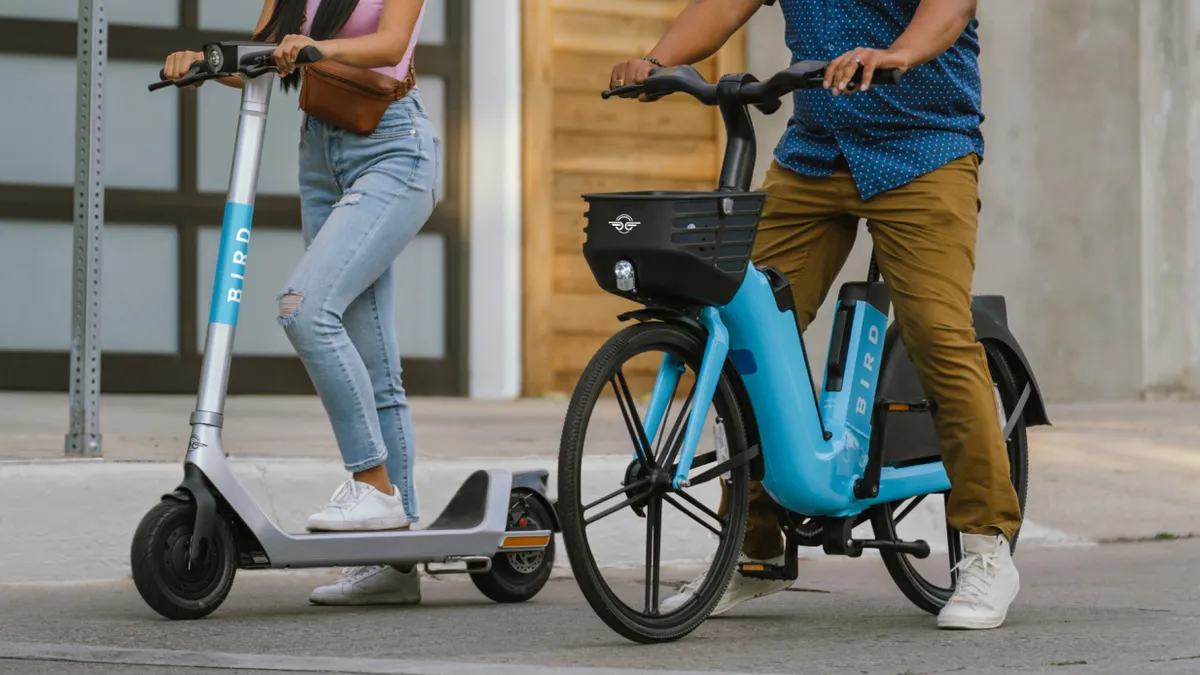Micromobility company Bird will cease operations in numerous unspecified small and mid-sized markets in the U.S., citing issues preventing economic viability in some regions, according to a company blog Tuesday.
The company, which operates shared scooters and bike programs in hundreds of cities around the world, will also fully exit Germany, Sweden and Norway, as well as some other markets across Europe, the Middle East and Africa.
The company cited conditions in some markets that are inadequate “to build an economically viable business,” and placed blame in some cases on “the lack of a robust regulatory framework.”
Bird “conducted a thorough review of our portfolio of cities to determine whether or not they possess the regulatory framework necessary to facilitate the development of an innovative, competitive, self-sustaining micromobility industry,” the blog stated. “It has become clear that some markets lack such a framework, resulting in an oversupply of vehicles that has led to overcrowded streets and a high but frequently rotating number of competitors.”
That analysis led the company to “make a clear distinction between markets where we see a near-term path to fully self-sustainable operations, and those which appear to be longer-term, riskier investments.”
“We believe that focusing our business on a near-term path to self-sustainability best positions Bird to deliver on this mission in the long run,” the company concluded.
Many micromobility operations rolled out their vehicles in cities years ago with limited regulation, but many cities have since implemented parameters and restrictions around operations. At the Micromobility World conference at the start of the year, former CEO and remaining Chairman Travis VanderZanden called on cities to invest more heavily in bike and scooter infrastructure.
In May 2021, Bird announced it would go public by merging with a special purpose acquisition company, or SPAC, in a deal that valued Bird at $2.3 billion. Bird stock began trading on the New York Stock Exchange last November at $8.40 per share. Since May, it’s traded at under a dollar. Profitability has largely been elusive for operators in the micromobility sector.
In 2021, Bird’s revenues exceeded $205 million, more than doubling over the prior year. The net loss for the year was approximately $196 million, versus about $208 million in 2020.
Bird wrote that the market changes will “unfortunately also have an impact on some of our employees and contractors in Europe, as well as on supporting teams in the U.S.” TechCrunch reported in June that Bird was laying off 23% of its staff. Other industry layoffs this year include at Superpedestrian, Spin and Voi.
Earlier this month, the company announced a series of leadership changes, appointing existing Bird leaders as its new chief executive and technology officers. Bird’s new chief financial officer joins the company from Archer Aviation, a company that went public last year specializing in electric vertical takeoff and landing, or eVTOL, aircraft.











